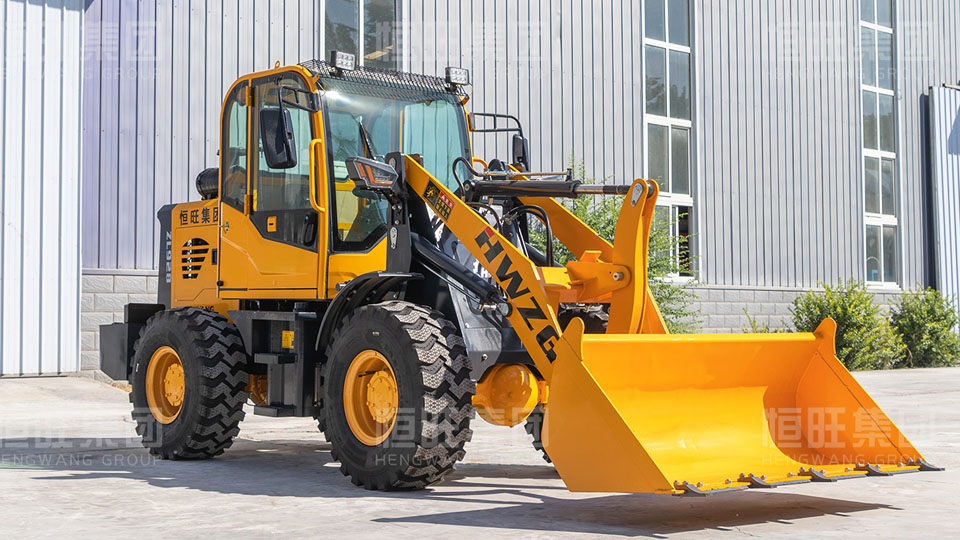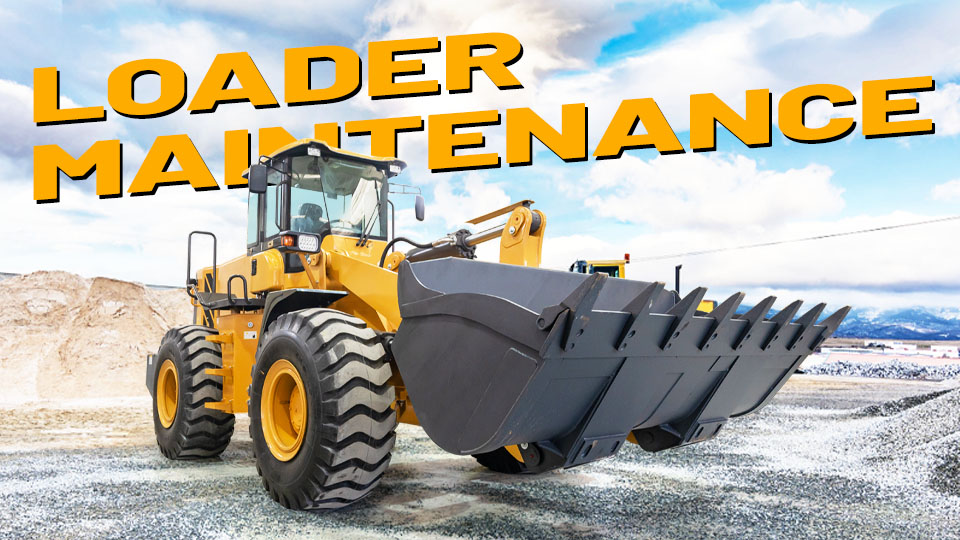1. Daily Pre - operation Inspections
A comprehensive pre - start check is the foundation of loader maintenance. Prioritize tasks such as verifying engine oil and hydraulic fluid levels, checking tire pressure and wear, testing lighting and braking systems, and promptly identifying potential issues like leaks or cracks. This initial step forms the first line of defense in loader maintenance.
2. Specialized Engine System Maintenance
As the heart of loaders, engine care is a top priority in loader maintenance:
· Regularly clean or replace air filters to protect against dust damage.
· Drain water from fuel separators and use high - quality fuel to prevent contamination.
· Clean radiators and cooling fins to avoid overheating.
Proper engine maintenance directly influences the overall effectiveness of loader maintenance.
3. Focused Hydraulic System Upkeep
The hydraulic system's condition is a critical aspect of loader maintenance, requiring the following steps:
· Continuously monitor hydraulic fluid levels to prevent shortages or contamination.
· Inspect hydraulic hoses and cylinders for leaks or wear.
· Replace filters periodically to avoid oil passage blockages.
Efficient hydraulic system maintenance significantly enhances loader maintenance outcomes.

4. Lubrication Management for Moving Parts
Lubricating pivot points, bearings, and other moving components is essential for loader maintenance. Follow the manufacturer’s lubrication guidelines to minimize wear and extend equipment lifespan, reinforcing the fundamental work of loader maintenance.
5. Transmission and Brake System Monitoring
Maintaining the transmission and brake systems is crucial for loader maintenance safety:
· Check transmission fluid levels and cleanliness to prevent shifting failures.
· Inspect brake pad wear and potential leaks in the braking lines.
Addressing system issues promptly ensures the safety and reliability of loader maintenance.
6. Electrical System Maintenance Essentials
Loader maintenance must include electrical system care:
· Clean battery terminal corrosion and secure wiring connections.
· Check for worn - out wires or poor contacts.
A well - functioning electrical system is an integral part of loader maintenance.
7. Cleaning, Storage, and Operator Training
Regularly clean the equipment’s exterior and engine compartment to prevent debris buildup. When storing the loader long - term, drain fluids and cover components as per specifications. Additionally, operators should master safe operation techniques and recognize early failure signs, strengthening the practicality of loader maintenance from the usage end.
Strictly implementing these seven loader maintenance practices can effectively reduce equipment downtime and boost operational efficiency. For professional loader maintenance support, contact us to obtain customized solutions.

Looking to unlock the secret to efficient construction? Hengwang's wheel loader, with its powerful engine, wear-resistant tires, and multifunctional boom, effortlessly tackles all kinds of complex working conditions! Whether it's heavy-duty handling in mines or material loading/unloading on construction sites, it's your ideal choice for cost reduction and efficiency improvement!
Click to our homepage and leave an inquiry now to get an exclusive quote and equipment details. Our professional team is online 24/7 to tailor-made construction solutions for you, helping you seize the initiative in engineering projects!
